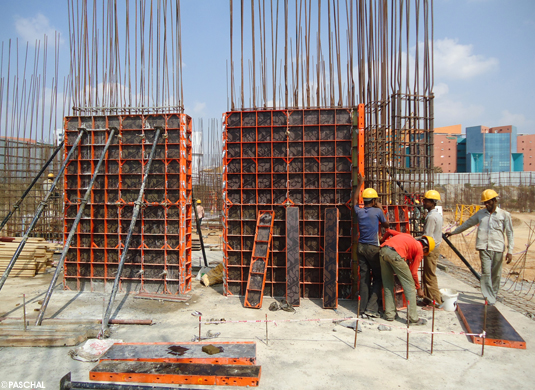The Project Management Professional (PMP) certification is one of the most prestigious credentials in the field of project management. Recognized globally, it opens doors to higher salaries, better job prospects, and professional growth. However, achieving PMP certification requires significant preparation. The amount of time required for PMP exam preparation can vary based on several factors, including prior knowledge, study habits, and available resources. This article delves into the key aspects that determine the preparation time for the PMP exam and offers practical advice for prospective candidates.
Understanding the PMP Exam
The PMP Course in Atlanta GA is rigorous and covers a wide range of project management topics. It consists of 180 questions, which must be completed within 230 minutes. The questions are based on the PMP Examination Content Outline, which includes domains such as People, Process, and Business Environment. Each domain has its specific tasks and responsibilities that project managers need to be familiar with.
Factors Influencing Preparation Time
-
Background and Experience:
- Project Management Experience: Candidates with extensive project management experience may find some of the PMP concepts familiar, reducing the overall study time. However, they still need to learn PMI’s terminology and methodology, which might differ from their practical experiences.
- Educational Background: Those with a strong background in project management or related fields may have a shorter learning curve compared to individuals from different disciplines.
-
Study Habits and Learning Style:
- Consistent Study Schedule: Developing a consistent study routine is crucial. Candidates who can dedicate a set amount of time each day or week to study are likely to progress faster.
- Learning Style: Visual learners might benefit from video tutorials and diagrams, while reading/writing learners might prefer textbooks and notes. Understanding one’s learning style can make the study process more efficient.
-
Availability of Resources:
- Study Materials: Access to quality study materials such as the PMBOK Guide, exam prep books, online courses, and practice exams can significantly affect preparation time.
- Training Programs: Enrolling in a structured training program or boot camp can provide a focused study plan and expert guidance, potentially shortening the preparation period.
-
Personal and Professional Commitments:
- Work and Family Obligations: Balancing study time with work and family responsibilities can impact the amount of time available for exam preparation. Effective time management and prioritization are essential.
Estimating Preparation Time
On average, PMP candidates spend between 100 to 200 hours preparing for the exam. This estimation can be broken down into several components:
-
Understanding the Exam Content:
- PMBOK Guide and Reference Books: Thoroughly reading the PMBOK Guide and other reference books can take approximately 40-60 hours. This foundational step is crucial for understanding PMI’s approach and terminology.
-
Online Courses and Training Programs:
- Formal Training: Enrolling in a formal PMP training course, which often spans 35 hours (to meet PMI’s educational requirement), provides structured learning and ensures that all exam topics are covered.
-
Practice Exams and Question Banks:
- Practice Tests: Taking multiple practice exams and reviewing question banks can take around 30-50 hours. This practice helps in understanding the exam format, timing, and identifying areas of weakness.
-
Review and Revision:
- Revision Sessions: Setting aside time for regular review and revision of key concepts, formulas, and processes is essential. This might take another 20-40 hours, depending on the individual’s retention and understanding.
Creating a Study Plan
A well-structured study plan is vital for effective preparation. Here is a sample plan for a 12-week study period, assuming a total preparation time of 150 hours:
-
Weeks 1-4:
- PMBOK Guide and Reference Books: Dedicate 10 hours per week to reading and understanding the PMBOK Guide and other reference materials.
-
Weeks 5-8:
- Online Courses and Training Programs: Allocate 8 hours per week to attend online courses or a structured training program.
- Practice Questions: Spend 2 hours per week on practice questions to reinforce learning.
-
Weeks 9-11:
- Practice Exams: Take full-length practice exams each week, followed by detailed reviews (approximately 8 hours per week).
- Revision: Use the remaining time for targeted revision of weaker areas identified during practice exams.
-
Week 12:
- Final Review and Preparation: Focus on final revision, review notes, and take one or two more practice exams to ensure readiness (approximately 10-15 hours).
Tips for Effective PMP Exam Preparation
- Set Clear Goals: Define specific study goals and milestones to stay on track.
- Use Multiple Resources: Combine different study materials and resources for a well-rounded understanding.
- Join Study Groups: Engaging with study groups or forums can provide support, motivation, and additional insights.
- Take Breaks: Avoid burnout by incorporating regular breaks and relaxation into your study schedule.
- Stay Positive: Maintain a positive mindset and stay confident in your preparation.
Conclusion
Preparing for the PMP exam requires a substantial commitment of time and effort. While the exact duration varies for each candidate, understanding the influencing factors and creating a structured study plan can significantly enhance the efficiency and effectiveness of the preparation process. With dedication, the right resources, and a strategic approach, achieving PMP certification is an attainable goal.














